This post may contain affiliate links. Please read our disclosure policy. As an Amazon Associate, I earn from qualifying purchases.
Did you know you can use your sourdough discard for pizza dough? This sourdough discard pizza dough recipe is one of the best ways to put that discard to work. And you’ll end up with a crust that’s chewy, flavorful, and a little rustic, in all the best ways.
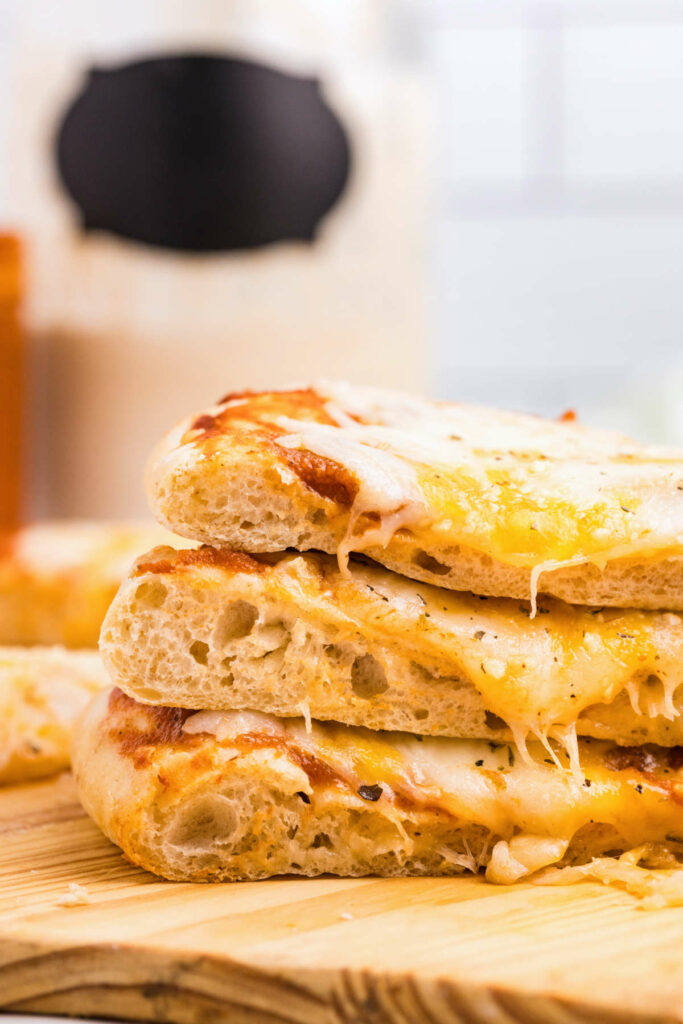
No need to toss out that starter; instead, let it add character to the dough. And the best part? You can control the tang by either doing a quick rise or letting it rest overnight for more of that signature sourdough flavor. So, get ready to skip the pizza delivery, you’ve got everything you need for an amazing homemade crust!

If you’re looking for another way to use your starter, try our sourdough flatbread. It’s quick, easy, and perfect for last-minute meals.
Here is Why This Sourdough Discard Pizza Dough Recipe Works
Bye-Bye, Waste! Using sourdough discard means you’re turning leftovers into pizza.
Customize the Tang: Prefer a mild flavor? Go for a quick rise. Want that extra sour punch? Let it chill overnight. You’re the boss of your crust!
No Fancy Ingredients: Just a handful of basics you probably already have. Nothing weird or hard to pronounce here.
Thin or Thick, You Pick: This dough goes both ways! Craving a crispy thin crust or a soft, thicker bite? It’s up to you (and your toppings).
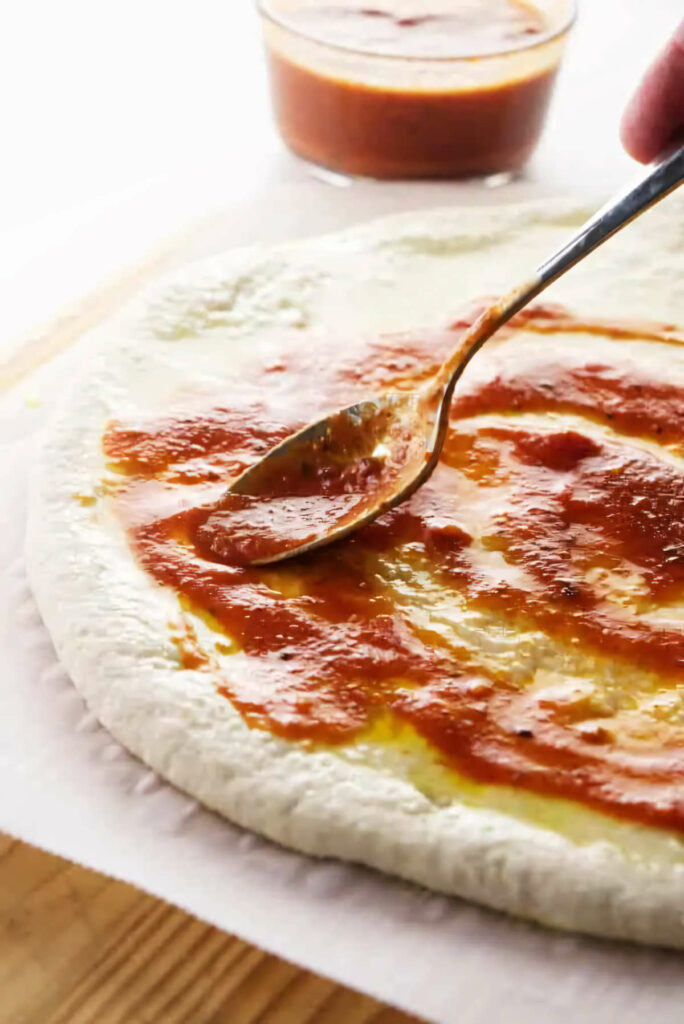
Short on time? Try our quick pizza dough recipe for a classic crust without sourdough.
Recipe Tips
Adjust for watery discard: If your discard is especially thin, add flour gradually until the dough feels slightly tacky but not overly sticky.
Boost older discard: If your discard is more than a week old, or you need the dough to rise faster, add a small amount of instant yeast for extra lift.
Add flour slowly: As you knead, work in flour a little at a time until the dough comes together. Adding too much too quickly can lead to a dry, tough crust.
Knead thoroughly: Knead by hand or use a stand mixer with a dough hook for 8–10 minutes, until the dough is smooth and springs back when lightly pressed.
Let the dough relax: If the dough resists while kneading, rest it for 5–10 minutes to allow the gluten to relax, making it easier to work with.
Prevent sticking without extra flour: Lightly wet your hands instead of adding more flour. This keeps the dough soft and pliable.
Go easy on the toppings: Too many toppings can weigh down the crust and make it soggy. Keep it balanced for the best texture.
Use high heat: Preheat the oven well, ideally to 500°F for thin crust. The higher temperature creates a crispier base that holds up to toppings.
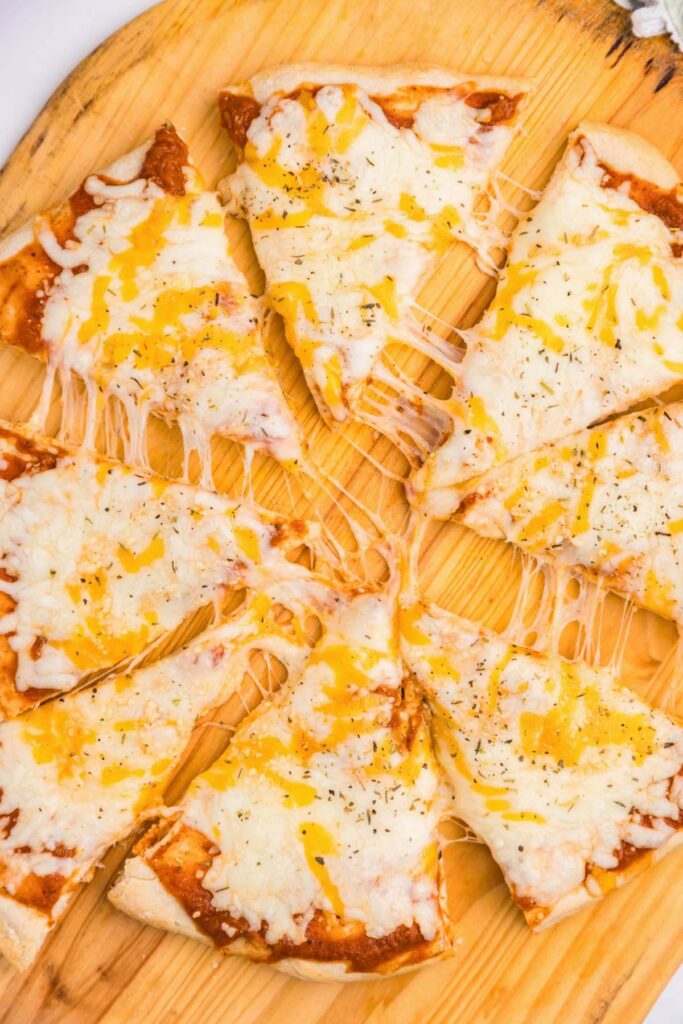
Pizza Dough Q&A: Sourdough Edition
Yes. All-purpose flour creates a soft, slightly chewy crust, while pizza flour (Tipo 00) bakes up crisper with a classic pizzeria-style texture. Choose the one that matches the style of pizza you’re going for.
Unfed discard is the portion of starter removed before its regular feeding. It hasn’t been refreshed with new flour or water. If it’s fairly fresh, it can still add some rising power to pizza dough. Once you mix it with more flour and water and let it rest, you’re essentially feeding it again, giving it enough strength to produce a flavorful, chewy crust.
Margherita: Tomato sauce, fresh mozzarella, and basil leaves. Drizzle with olive oil before baking, and finish with extra basil and a pinch of salt.
BBQ Chicken: BBQ sauce, shredded cooked chicken, thinly sliced red onion, mozzarella, and Gouda.
Mediterranean Veggie: Olive oil, minced garlic, red bell peppers, Kalamata olives, feta, cherry tomatoes, and fresh spinach.
Pepperoni & Mushroom: Tomato sauce, pepperoni slices, fresh mushrooms, and mozzarella.
Make Pizza Dough with Discard!
Why toss that sourdough discard when it can become the pizza crust of your dreams? This pizza dough’s got it all, soft airy texture, sourdough tang, and zero waste.
So skip the takeout, grab your toppings, and show off your homemade pizza skills. Let’s go make pizza! Got extra discard on hand? Put it to good use with our sourdough crackers.
Pin this now to find it later!
Pin It
Sourdough Discard Pizza Crust
If you make this recipe, please leave a star rating and comment.
Ingredients
- 1 cup sourdough discard, (240 grams)
- ¾ cup warm water, (170 grams)
- 2 ¾ cups all-purpose flour , or pizza flour; 330 grams
- ½ teaspoon instant dry yeast, (optional; see notes)
- 1 teaspoon salt, (6 grams)
Instructions
- Add all the sourdough starter, water, and half of the flour to a mixing bowl. Add the yeast if using (yeast will be helpful if your discard is especially old). Stir the mixture well, then stir in the salt.
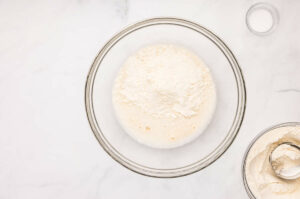
- Gradually add the rest of the flour in increments until the dough comes together in a rough, shaggy ball. It should be slightly tacky but not overly wet.It’s perfectly fine to use less flour if your dough reaches the right consistency before it’s all incorporated. If your discard is particularly old and watery, you will need to add additional flour.
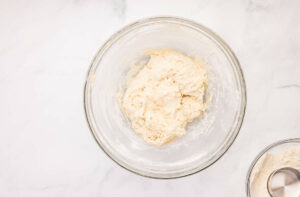
- Dump the dough out onto a floured counter and knead for 8 to 10 minutes until it is smooth and elastic or springy to the touch. Alternatively, you can use a stand mixer with a dough hook.
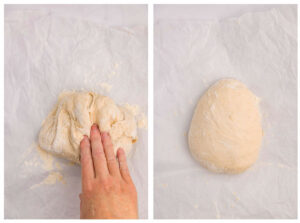
- Place the dough in a greased bowl and cover loosely with a towel or some plastic wrap. Set aside for 2 to 6 hours until it is doubled in size.
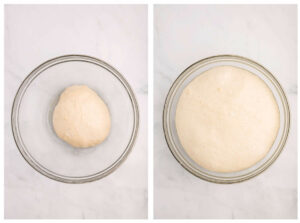
- Divide the dough in half and shape each piece into 2 round pizza disks about 12 inches in diameter. Place the shaped dough on either parchment paper or a well-oiled baking pan.
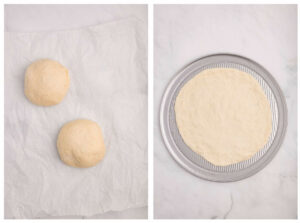
- Cover and let rest for 30 minutes to 1 hour or until the dough is slightly puffy. Toward the end of the rest period, preheat the oven to 500°F (or 425°F if making a thick crust pizza)
- For a thin crust pizza, add the toppings and bake for 7 to 10 minutes (depending on thickness.)
- For a thick crust pizza, bake the crust for 12 minutes before adding the toppings then bake for another 10 to 15 minutes.
Video
Notes
Nutrition
Nutrition information is automatically calculated, so should only be used as an approximation.
 Like this recipe? Rate & comment below!
Like this recipe? Rate & comment below!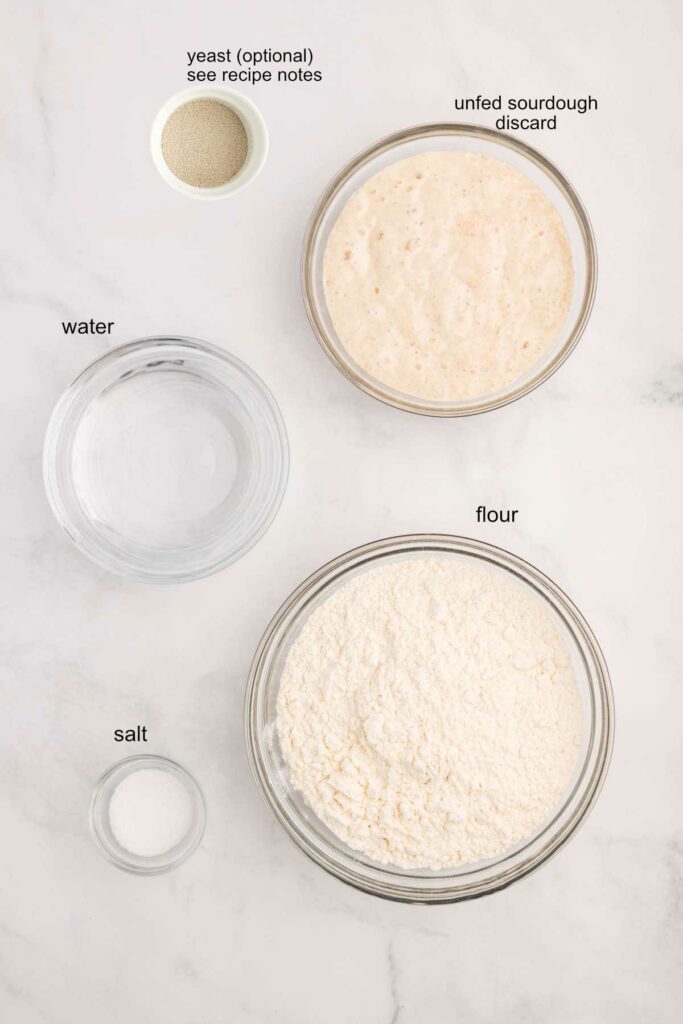

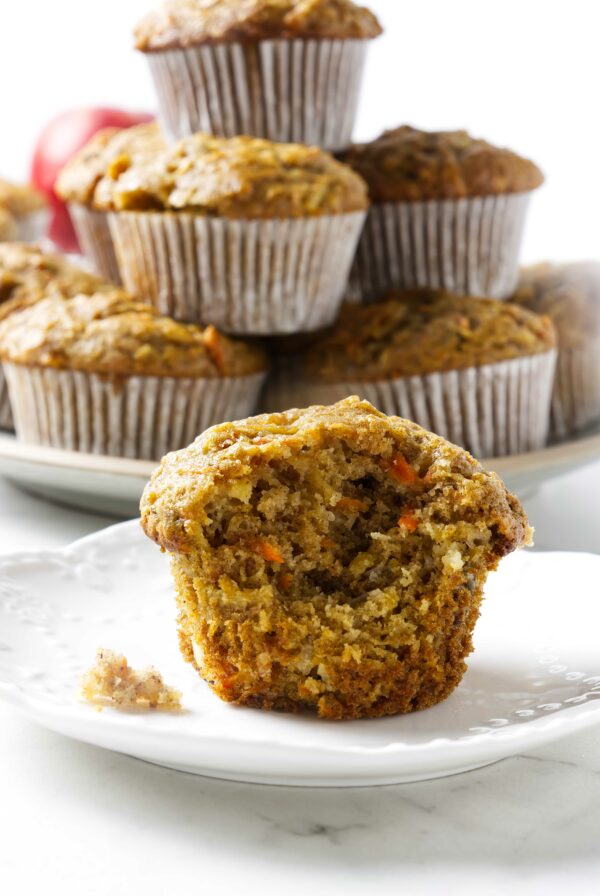
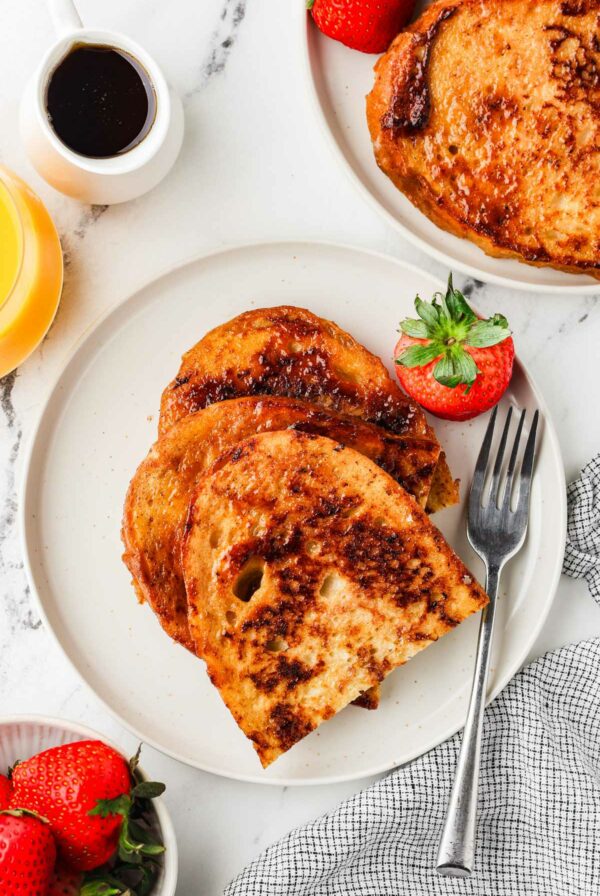
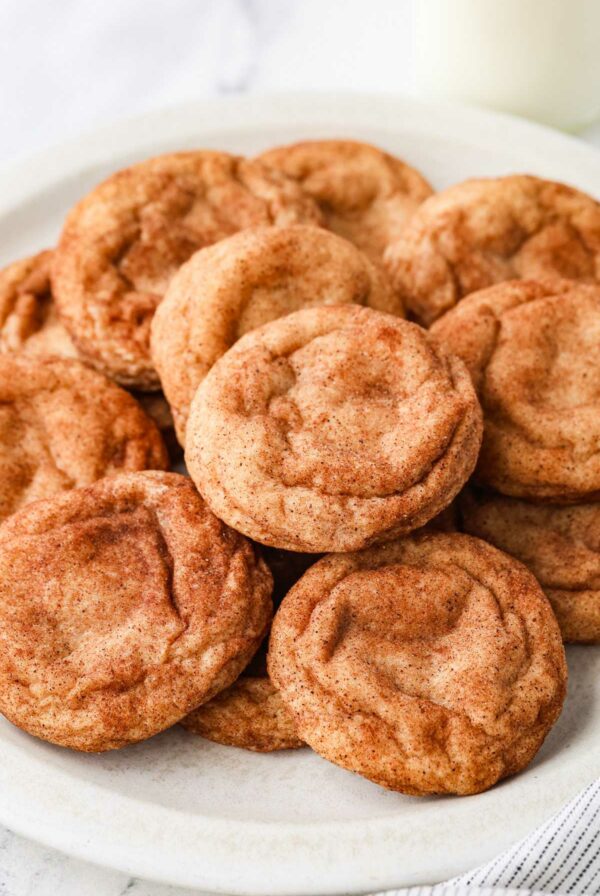
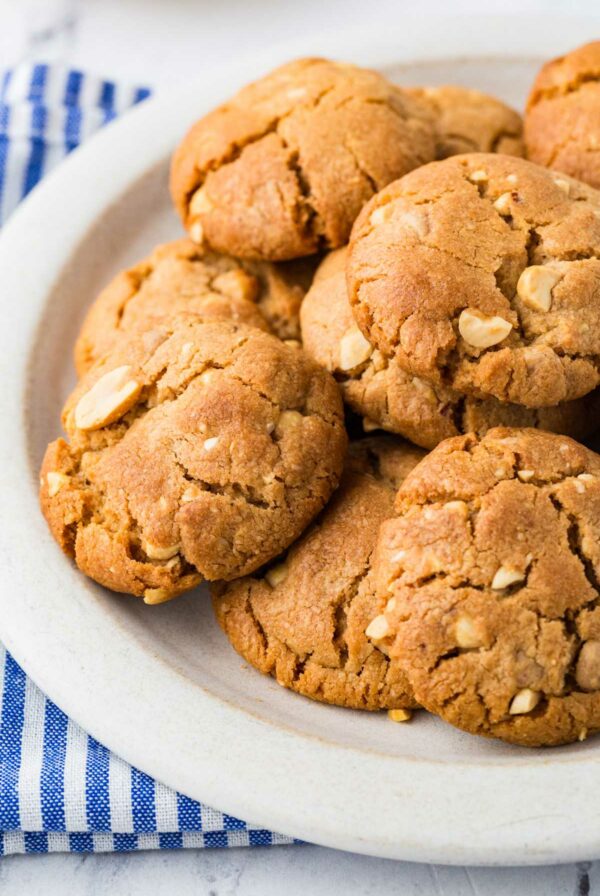










Easy to follow instructions! Thank you for this lovely recipe. Can the dough be frozen before baking?
Thanks for the kind comment! Yes, you can absolutely freeze the dough. Just let it finish the bulk fermentation, then shape it into dough balls, lightly oil them, and wrap each one tightly in plastic wrap or a freezer bag. When you’re ready to use it, let it thaw overnight in the fridge, then bring it to room temp before stretching and baking.
Perfect! Tastes wonderful!
Thanks for the comment!
My pizza didn’t seem to bake right, it was very white and soft. I left in for 14 min. I let it rise for 3 hours. I did notice my dough was very dry bit hadn’t read about adding more water. Any other possibilities why it didn’t turn out?
I’m sorry to hear that your pizza didn’t turn out as expected! Sourdough, and bread making in general, requires a bit of tweaking and adjustment from one kitchen to the next, as factors like humidity, altitude, and even the flour can affect the outcome. It sounds like the dough was too dry. I clarified the instructions and I hope that helps next time.
Can you freeze the sourdough pizza crust?
Yes, the pizza crust freezes great. Store it in a freezer proof bag and seal it well
This looks wonderful! What, if anything, would I do differently if I’m using an einkorn starter and whole grain einkorn flour?
Thanks for the question. This works great with whole grain einkorn if you use about 260 grams of flour or just a smidgen less than 2-3/4 cups. The dough will seem more hydrated and it is more difficult to work with than regular dough. You can add more flour if it seems too wet but it will have a much better texture if you can manage to work with the slightly more hydrated dough. I get my hands wet or oiled so the dough doesn’t stick to them.
Can I use sprouted spelt flour for this recipe?
Yes, you can! The sprouted flour will be able to handle a bit more hydration but it will still turn out well if you make the recipe without extra hydration.
Not understanding the difference between active and discard.
I leave 1/2 cup in jar and again add 1/2c water and 1 c flour.
Is this “fed starter” and what we use 240g of?
The next day it is bubbly and increased in size. Is this the “fed starter”? Or is it the discard?
An active, fed starter at its peak will double in size after you feed the starter. It will have the most strength if you use it when it is at its peak. You can also make the pizza dough using the discard or the part of the starter that you toss out before feeding your sourdough starter. If you use the discard to make the dough, then you are using it when it is at its weakest stage and it will take longer for your dough to rise.
Can einkorn all-purpose flour be used for this recipe?
Yes, you can. All purpose enkorn doesn’t absorb as much liquid, so you will need to adjust the water. Taking into account the liquid in your sourdough starter, you will want to decrease the water in the recipe to 70 grams (a smidgen less than 1/3 cup). After you mix the dough, let it sit for 10 minutes before determining if it needs more liquid.